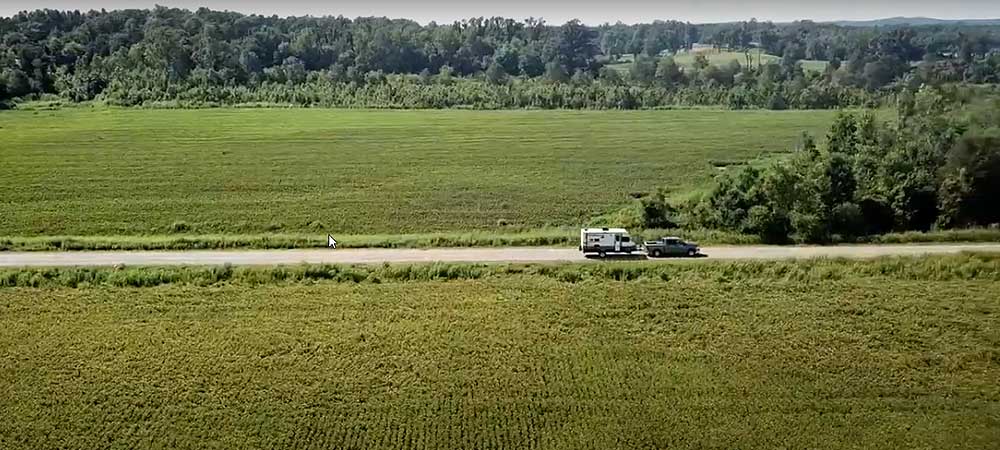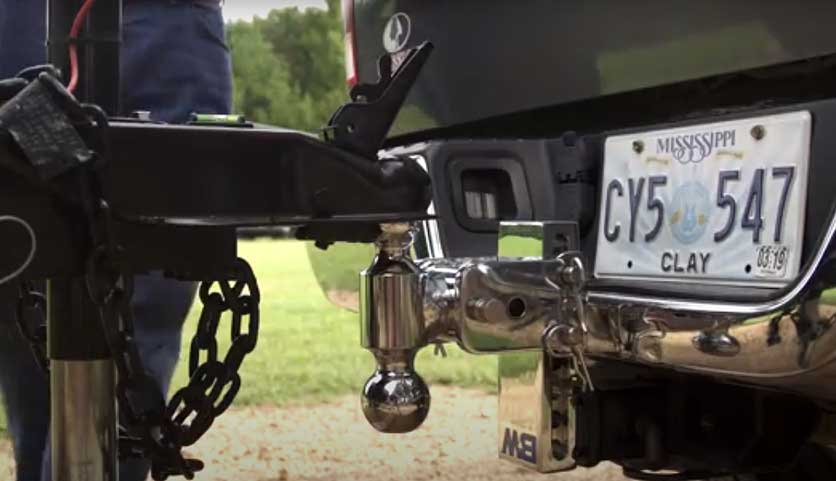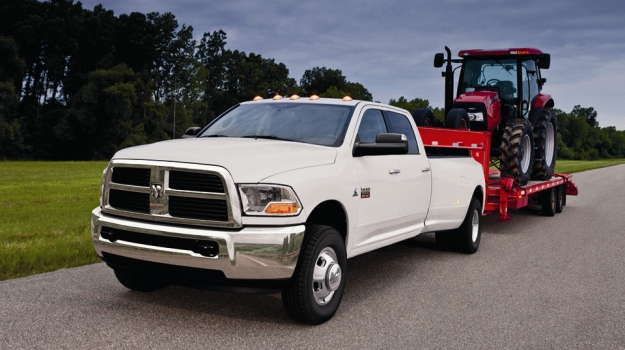Jeremy Duckett
There are a lot of different trailer hitches on the market, and it can be difficult to find the right one. There are many factors that need to be taken into consideration when purchasing a trailer hitch, including weight capacity, class, and quality.
We will be diving into the differences between the classes of trailer hitches. In addition, we will discuss what to look for in a high quality hitch.

What Are The Available Trailer Hitch Classes?
When considering what hitch class your particular situation will require, below is a guideline of the available classes, their capacities, and receiver sizes. While many charts may vary, this is a basic breakdown. Always refer to your specific load size, vehicle capacity, and product to confirm you have the correct configuration for your needs.
| GTW* | TW* | Receiver Size | |
| Class I | 1,000-2,000 lbs | 100-200 lbs | 1-1/4" |
| Class II | 2,000-3,500 lbs | 200-525 lbs | 1-1/4" |
| Class III | 3,500-8,000 lbs | 300-800 lbs | 2 " |
| Class IV | 5,000-12,000 lbs | 500-1,200 lbs | 2" |
| Class V | 10,000-25,000 lbs | 1,000-4,000 lbs | 2", 2-1/2", 3" |
*GTW=Gross Trailer Weight, TW - Tongue Weight
Class I
Class I hitches are typically reserved for lighter loads. These are for cars and small SUVs. They can support loads such as bikes, kayaks, coolers, etc. You may also find this size of hitch mounted to ATV and UTVs.
Class II
A Class II trailer hitch is slightly heavier than a Class I. However, they typically support similar cargo as a Class I. With a Class II, it adds more flexibility if you want to tow small pull behind trailers or small aluminum boats. Both the Class I and Class II hitches generally use the same size receivers.
Class III
Class III trailer hitches are the most common class of hitch for personal use and small families. A Class III hitch can be installed on all vehicles shown above as well as full sized SUVs and trucks. With this class of hitch, it allows you to step up your loads to mid-sized boats, motorcycles, larger pull behind trailers and campers, etc.
Class IV
Similar to the difference between the Class I and Class II hitches, the Class IV is a heavier version of the Class III that use the same received size. Typically, these will be mounted to full sized SUVs and trucks. These can be used to haul large campers, animal trailers, and large boats.
Class V
The Class V hitch is the largest available bumper hitch available on the market. The Class V hitches are made for heavy-duty service. Generally, these are reserved for large commercial grade trucks and heavy duty pick-ups with larger towing capacity. These are great for farm-sized needs for animal trailers, large campers, vehicle trailers, large boats, and construction equipment.

PREPARING YOUR BOAT FOR TRAILERING
What Makes A High Quality Trailer Hitch?
Construction
High-quality hitches will be fabricated using steel products and fully wrapped welds around all tube connections. These should have a limited number of connected members to help reduce the number of connections that can tend to be weak spots and locations for potential failure. Many of these will have bolted connections as well as they are easier to install at home. For those of us who are not welders by trade, the bolted connections allow us to install most hitches ourselves.
Finish
All high-quality trailer hitches will be coated with a high-quality corrosion resistant coating. As these will be subjected to constant atmospheric elements, it is critical that hitches be coated with a high quality corrosion resistant coating.
Flexibility
The trailer hitch is only the receiving device. It’s always beneficial to be able to match products within their same brand and they are typically tested and developed to work with each other. While the hitch is limited in its use, the available variety of mounts and balls allows you to develop a system for all of your needs.
The SAE-J2638 Test
SAE-J2638 requires hitches to complete nine independent tests without loss of attachment. This means that if the damage occurred while driving, it would not allow the trailer to separate from the truck. The nine tests include static tests of force against the hitch in six directions and three dynamic tests of 300,000 cycles each. An accident rarely happens when a hitch is brand new, it often happens after years of wear from the road.
Warranty
As with any high-quality product in the marketplace, a quality trailer hitch will come with an unwavering lifetime warranty. While hitches are installed in a very corrosive location, it’s impossible to keep them in a “new” condition. If anything fails, the manufacturer should be standing behind their product with a full replacement.

Conclusion
Understanding the proper class required for your situation is critical. It’s a matter of safety for yourself and others on the road. There are many products in the market place and some value products may not hold up the rigors that hauling our equipment, tools, and toys require. Your trailer hitch is not the area to consider skimping on.
Take the time to ensure you’re getting what you are purchasing. Reach out to the suppliers directly to ask questions. They are accessible and always happy to assist. Their professional input will always steer you in the right direction.




























